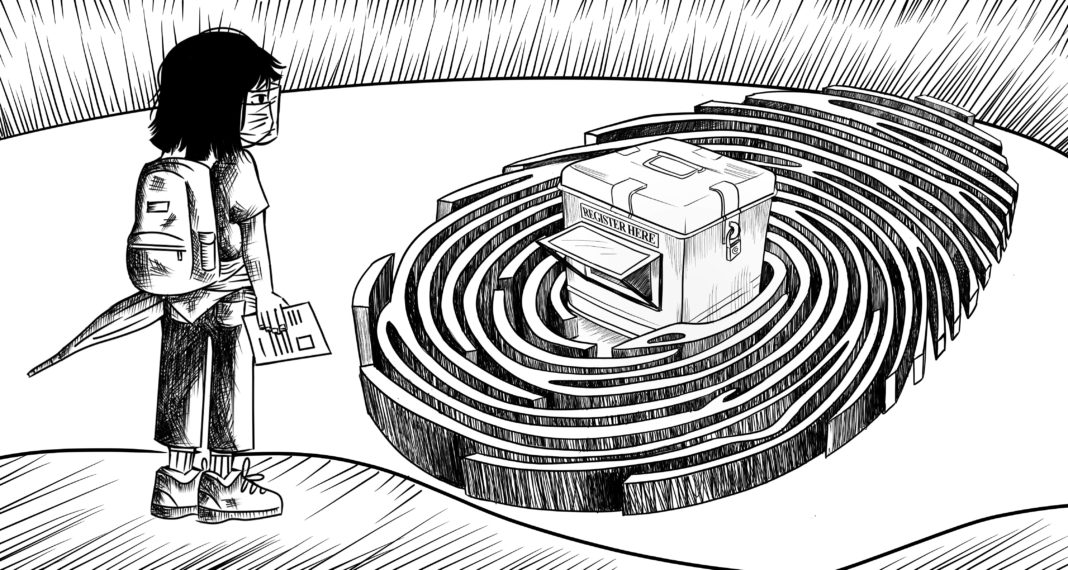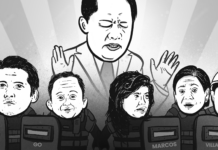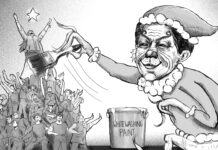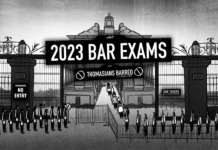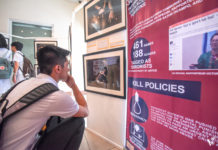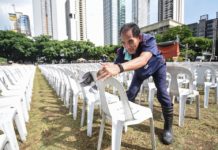With the 2022 national and local elections in the Philippines just a year away and considering our still unfinished battle against Covid-19, our collective preoccupation is now getting shifted to politics and all its feculent splendor. Oh well, at least, after almost two years of disabling lockdowns and vexatious restrictions, we’re beginning to have a sense of normalcy—out of all the insanity. We’re back to the old normal.
The pandemic has brought the economy and much of our social life to a standstill, but it can’t slow down the delirious lead-up to a predicably nasty election season. It can’t even budge the Commission on Elections (Comelec), despite calls for the extension of voter registration beyond the September 30 deadline.
Much as it has been declaring success for surpassing its initial target of 59 million registered voters by two million last August, and exceeding the four million new voters mark two months earlier, the Comelec is still falling short by huge numbers. Of the 73 million Filipinos qualified to vote in 2022 per a Philippine Statistics Authority projection, around 12 million still have to register.
For the 2016 national and local elections, which hit a record-breaking voter turnout of almost 82 percent, only 54 million registered out of the 64 million qualified to vote. There was a nearly 76 percent turnout in the 2019 polls, during which registration reached 62 million (three million later deactivated) out of the more than 68 million qualified. So, the Comelec shouldn’t be jumping up and down for outdoing itself and exceeding its own downsized expectations.
The Senate on Sept. 14 unanimously adopted a resolution that urged the Comelec to extend voter registration by a month, saying an extension of the registration period would help prevent disenfranchisement of voters.
It was only on August 23 when the Comelec extended voter registration hours to 8 a.m. to 7 p.m. from Mondays to Fridays and 8 a.m. to 5 p.m. on Saturdays and holidays. Almost two weeks later, on September 2, the Comelec approved the resumption of voter registration in areas under modified enhanced community quarantine, which was then imposed over 15 areas in Luzon, Visayas and Mindanao. Better late than never, but these measures were not enough to solve the voter disenfranchisement issues introduced by the Covid-19 pandemic.
But given its propensity towards the use of outdated and even questionable electronic vote-counting machines and system, it’s still perplexing how the Comelec is still requiring in-person registration like it’s still 1940 (when it was created), and especially during a pandemic. No matter how much elections are hated or enjoyed, people would rather risk life lining up these times for vaccinations, not for some biometrics and voter’s certificate. Disappointingly, the commission’s iRehistro program is merely an online application for personal registration at designated locations around the country. What a waste of time and tax money, and how inconsiderate and stupid that is! It’s imbecilic stuff like this that reminds us we’re hopelessly third world.
It’s tragic, too, that despite our ever-increasing reliance upon and growing success with virtual transactions that cover everything from shopping and travel to banking and education, the agency that’s tasked to prepare our polls and count our votes remain disconnected from the demands and realities of the times. Too bad for Comelec, common sense has sold out online.
As it’s not likely the Comelec will grow some sense any time soon (it hasn’t all these years) and virtualize, voter registration, once and for all, it can at least afford some compassion, if not more due diligence. The extension of the registration to another month or two will allow more time and safer conditions for millions of remaining unregistered voters to go out and sign up.
The subsistence and success of democracy, after all, are in the numbers.
Moreover we must remind the Comelec of its mission statement declaring themselves as “guardians of the sovereign will of the Filipino people…commit(ing) ourselves to conduct clean, credible, free, honest, orderly and modernized electoral exercises and to empower the electorate toward a vibrant Philippine democracy.”


